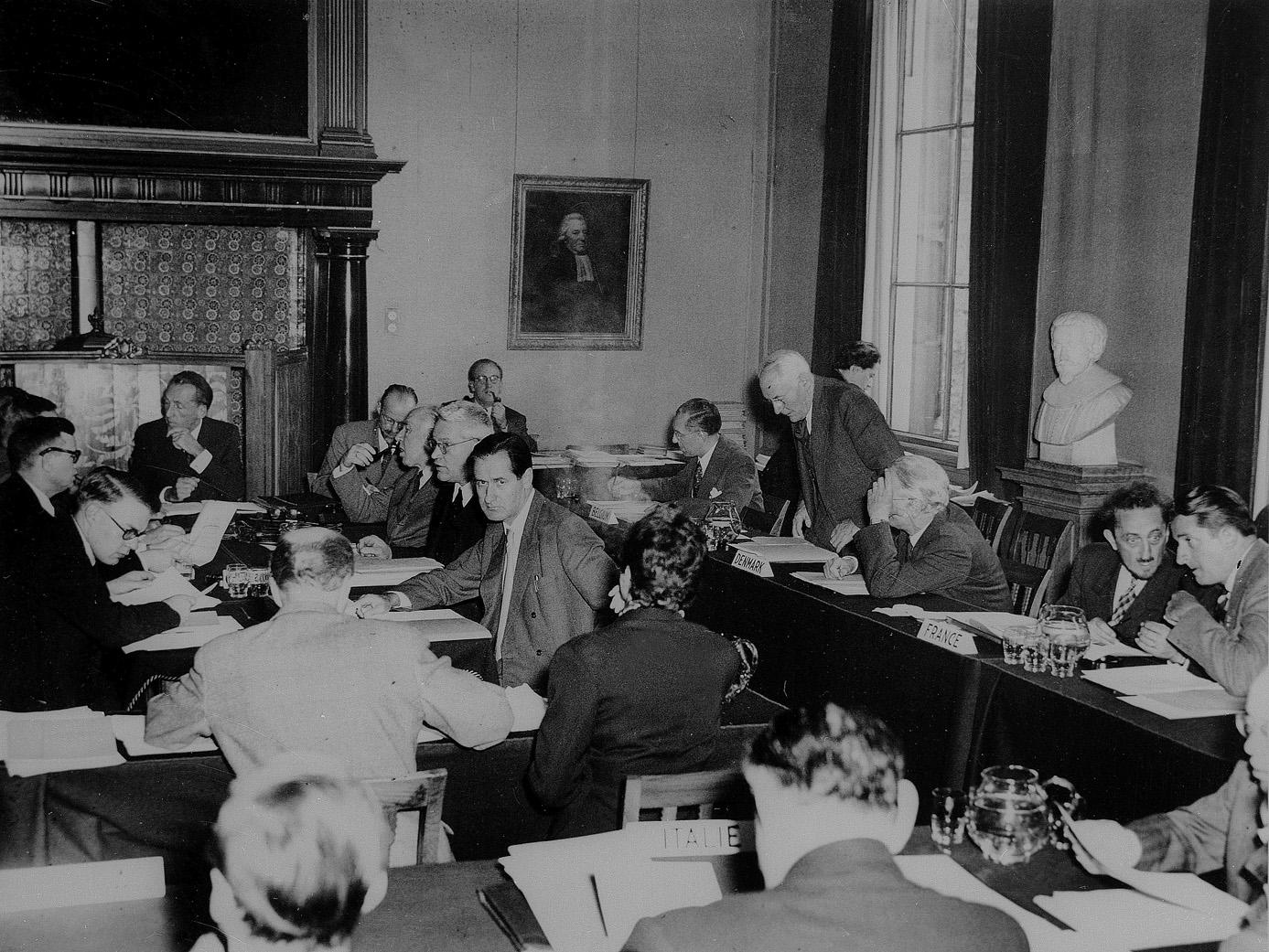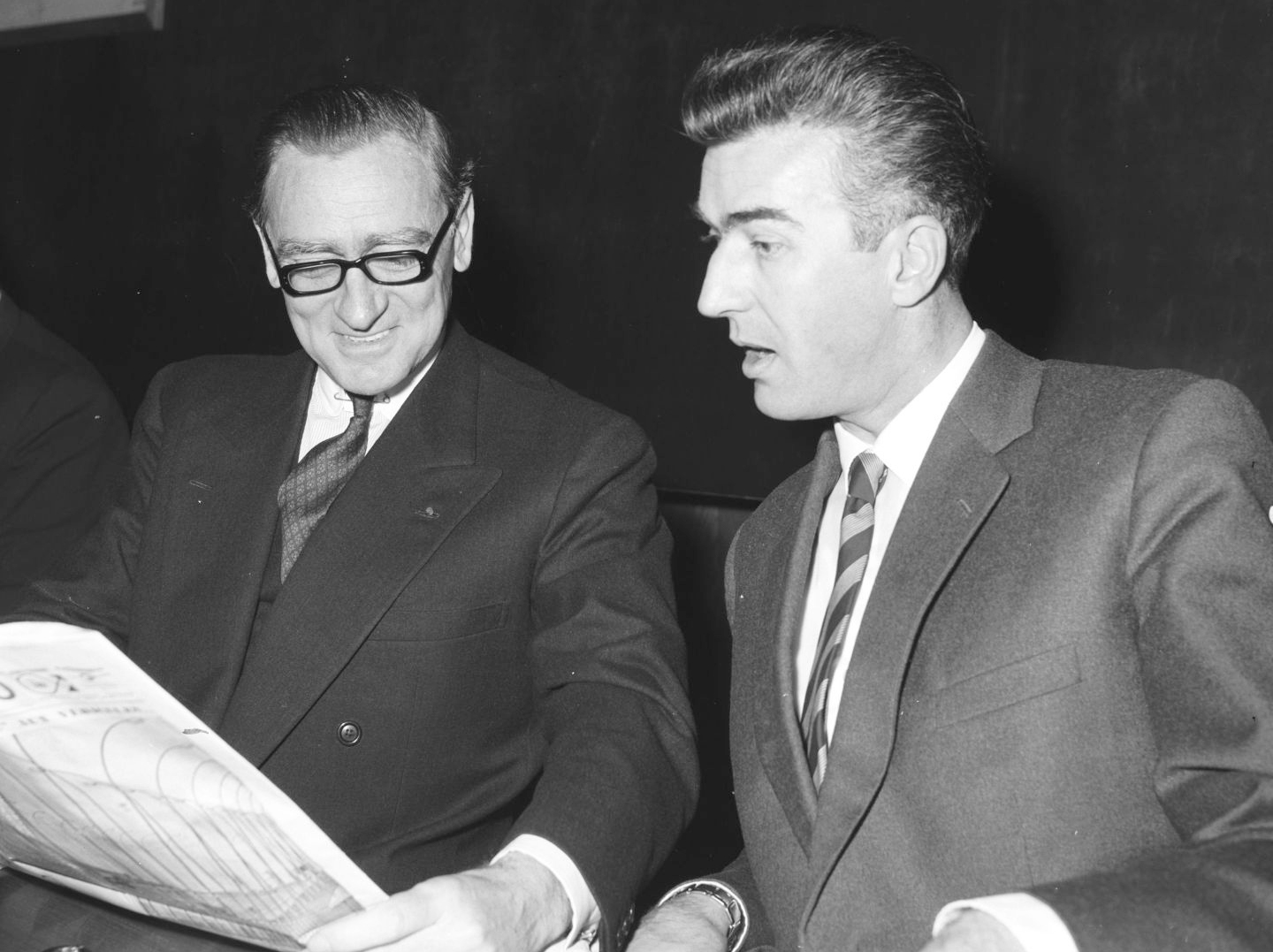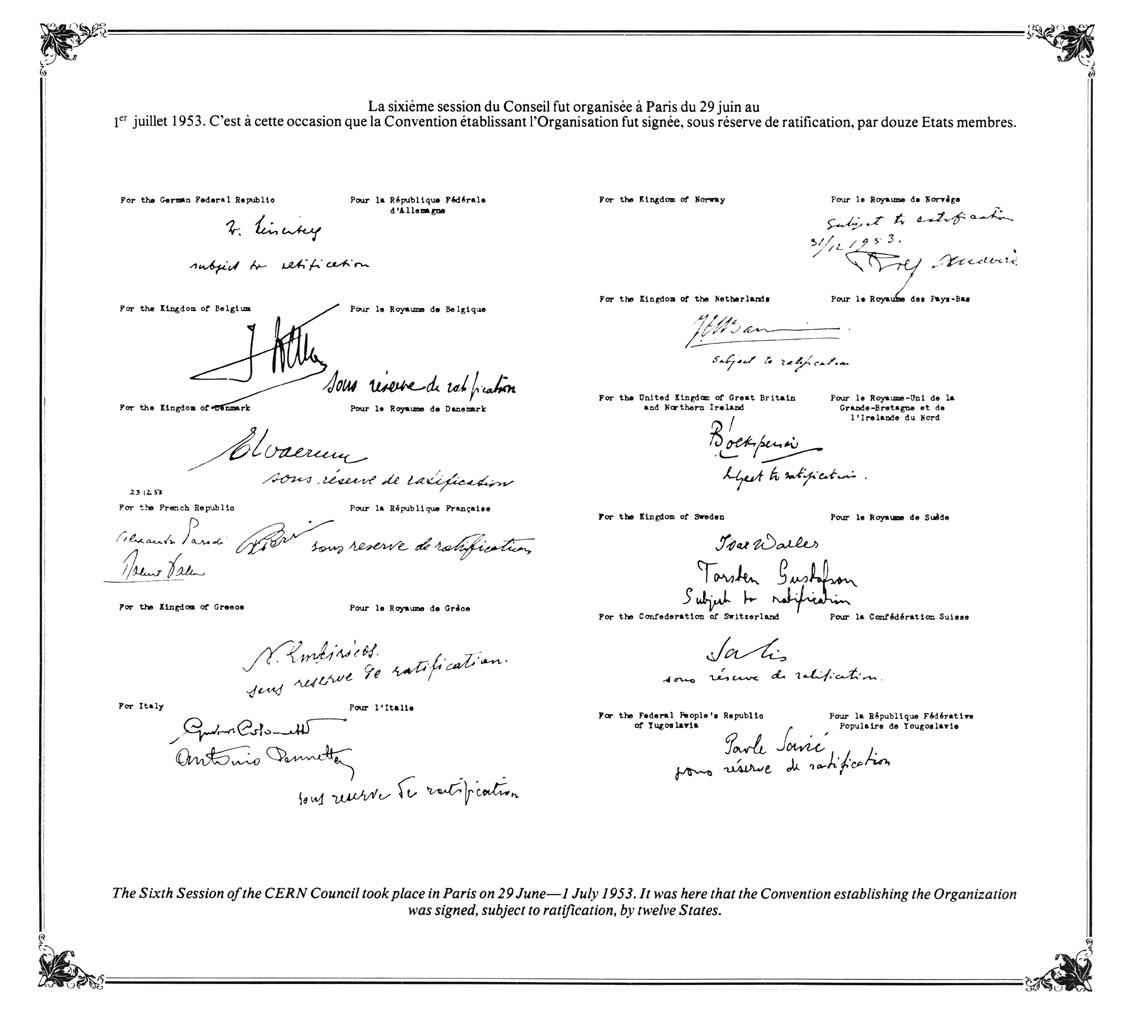CERN70: Foundations for European science
18 January 2024 · Voir en français
Part 1 of the CERN70 feature series. Find out more: cern70.cern
François de Rose, a French diplomat, was involved in the creation of CERN
In 2004, he still remembered the first discussions that ultimately led to the birth of the Organization

In the aftermath of the Second World War, a handful of visionary scientists imagined how to revive science in Europe. By pooling the resources of several countries, they hoped to equip Europe with accelerators similar to those being built in the United States, and thus stem the brain drain. The idea of creating a European atomic physics laboratory took shape. After months of negotiations, the UNESCO Intergovernmental Conference in 1951 adopted the first resolution to create a European Council for Nuclear Research (CERN).
The CERN Convention, drawn up in 1953, was gradually ratified by the 12 founding Member States: Belgium, Denmark, France, the Federal Republic of Germany, Greece, Italy, the Netherlands, Norway, Sweden, Switzerland, the United Kingdom and Yugoslavia.
On 29 September 1954, the European Organization for Nuclear Research officially came into being. The provisional Council was dissolved, but the acronym remained.
Recollections
CERN is one of the achievements with which I am the most proud to have been associated … it is such a noble cause.
François de Rose

François de Rose, a French diplomat, was involved in the creation of CERN from the very beginning. He went on to hold office as President of the CERN Council from 1958 to 1960, during which time he helped to prepare the Laboratory's extension into French territory. Interviewed in 2004, he had vivid memories of the initial discussions that led to the birth of the Organization.
"CERN is one of the achievements with which I am the most proud to have been associated … it is such a noble cause.
The first steps towards CERN’s creation were taken in the United States between 1947 and 1949. At that time I was the French representative to the United Nations International Atomic Energy Commission, which comprised both diplomats and scientists. It was there that I met Robert Oppenheimer, with whom I struck up a friendship. Like many American scientists, he had been very much influenced by European science, having worked in Niels Bohr’s group in particular. During one of our conversations he said more or less the following: “We have learnt all we know in Europe. But in the future, fundamental physics research is going to require substantial resources which will be beyond the means of individual European countries. You will need to pool your efforts to build these big machines that are going to be needed. It would be unhealthy if the Europeans were obliged to go the United States or the Soviet Union to conduct their fundamental research.” The idea fascinated me and I arranged for him to meet the French scientific advisers from my Commission, Pierre Auger, Francis Perrin, Lew Kowarski, and Bertrand Goldschmidt.

In 1949, when we returned to Paris, I went on a tour of European capitals with Francis Perrin to see what sort of reception Oppenheimer’s idea would be given. We were confronted with a lack of interest: the scientists were afraid that a big research centre would swallow all the available funds and soak up the resources of their own laboratories. They were wrong, however, because as soon as CERN started to request resources there was an increase in the funding allocated to research. What’s more, the governments had no idea of what it was all about: when they heard the words ‘atomic research’, they immediately thought of the atom bomb and were afraid that it would not go down well with the Americans. Last but not least, the fact that Frédéric Joliot Curie, an eminent member of the Communist Party, was in charge of the French Atomic Energy Commission caused the other European scientists to have cold feet. We therefore failed in our mission. However, the idea was now on the table and Isidor Rabi’s speech at the Florence General Conference secured the breakthrough we needed.
CERN was created so that Europeans were not forced to go the United States. Today, Americans are coming to Europe to work on CERN’s machines, something which I don’t think Oppenheimer had anticipated. I find that an extraordinary turnaround.”
----
This interview is adapted from the 2004 book “Infinitely CERN”, published to celebrate CERN’s 50th anniversary. François de Rose passed away in 2014 at the age of 103, read more about him in the CERN Courier.
